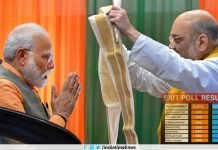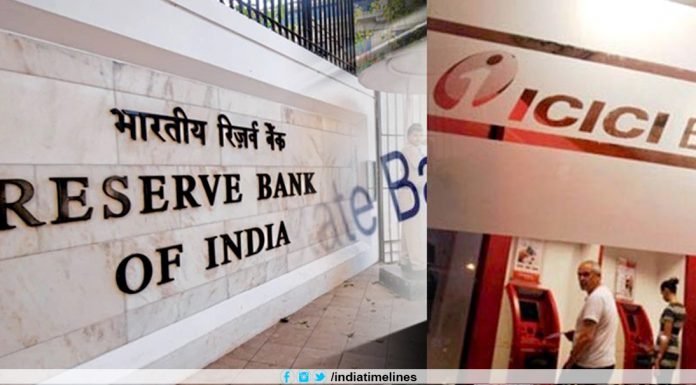
The recent controversy surrounding Lok Sabha Speaker Om Birla’s reference to the Emergency period has sparked a significant reaction from the Congress party. Describing it as “deeply shocking” and a “travesty of parliamentary traditions,” the Congress has vehemently opposed the Speaker’s comments. This article delves into the background of the Emergency, the role of the Lok Sabha Speaker, and the broader implications of this political clash.
The Context of the Emergency Reference
The Emergency, declared by then Prime Minister Indira Gandhi from 1975 to 1977, was a period of political turmoil in India. During this time, civil liberties were suspended, and political opponents were arrested. The role of the Lok Sabha Speaker is crucial in maintaining the sanctity of parliamentary proceedings, and Om Birla’s recent comments have brought this role into sharp focus.
Congress Party’s Reaction
Congress leaders were quick to denounce Om Birla’s reference to the Emergency. Prominent Congress member Rahul Gandhi described the remarks as an affront to parliamentary traditions. Other leaders echoed this sentiment, emphasizing the need to uphold the integrity of the legislative process.
Impact on Parliamentary Proceedings
The controversy has led to heated debates in the current parliamentary sessions. Members from various political parties have voiced their opinions, resulting in a polarized atmosphere. Media coverage has been extensive, highlighting the public’s interest in this issue.
Historical Perspective on the Emergency
The Emergency period is one of the most debated eras in Indian history. It involved significant political figures, including Indira Gandhi and Jayaprakash Narayan. The long-term impact on Indian democracy includes the strengthening of institutions and a greater emphasis on civil liberties.
The Role of the Lok Sabha Speaker
The Speaker of the Lok Sabha holds a position of great responsibility and is expected to be neutral and impartial. Om Birla, as the current Speaker, has the duty to ensure the smooth functioning of the House. Previous instances have shown that controversies involving the Speaker can have lasting effects on parliamentary decorum.
Analyzing Om Birla’s Reference
Om Birla’s reference to the Emergency was seen by many as a reminder of a dark chapter in Indian history. His statement was analyzed in the context of current political dynamics, drawing parallels between past and present situations. This analysis provides insight into the underlying tensions within Indian politics.
Responses from Other Political Parties
The BJP has defended Om Birla’s remarks, arguing that they highlight the importance of remembering historical lessons. Regional parties have had mixed reactions, with some supporting the Speaker and others siding with the Congress. Independent analysts have provided varied perspectives, reflecting the complexity of the issue.
Public Opinion
Public reaction to the controversy has been diverse. Social media platforms have been abuzz with discussions, and opinion polls indicate a split in public sentiment. While some support the Speaker’s reference, others believe it was unnecessary and provocative.
Media Analysis
Major news outlets have covered the controversy extensively, with editorials expressing a range of opinions. The media’s role in shaping public perception is significant, and this controversy has been no exception. The influence of media coverage on political discourse is evident in the ongoing debates.
Long-term Implications for Indian Politics
The fallout from this controversy could have lasting effects on Indian politics. Future parliamentary sessions may see increased scrutiny of the Speaker’s role and actions. There may also be calls for reforms to ensure greater impartiality and adherence to parliamentary traditions.
Conclusion
The uproar over Om Birla’s reference to the Emergency underscores the enduring sensitivity of this historical period in Indian politics. It highlights the importance of maintaining the integrity of parliamentary traditions and the critical role of the Speaker in upholding these values. As India continues to evolve as a democracy, the lessons from such controversies will shape its future.
FAQs
1. What did Om Birla say about the Emergency? Om Birla made a reference to the Emergency period during a parliamentary session, which sparked a significant reaction from the Congress party.
2. Why is the Congress party upset about the reference? The Congress party views the reference as a “travesty of parliamentary traditions” and believes it undermines the integrity of the legislative process.
3. How has this controversy affected parliamentary proceedings? The controversy has led to heated debates and a polarized atmosphere in current parliamentary sessions, drawing significant media attention.
4. What was the Emergency period in India? The Emergency was a 21-month period from 1975 to 1977 when Prime Minister Indira Gandhi declared a state of emergency, suspending civil liberties and arresting political opponents.
5. What are the duties of the Lok Sabha Speaker? The Lok Sabha Speaker is responsible for maintaining order in the House, ensuring the smooth functioning of parliamentary sessions, and being neutral and impartial in their duties.

































